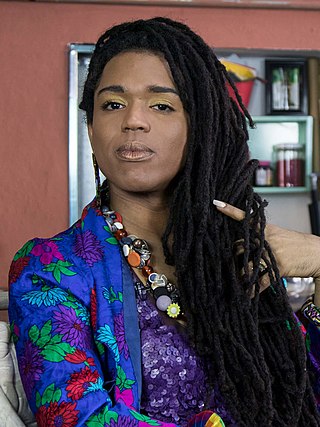Metropolitan Community Church London was the first Metropolitan Community Church congregation in Europe and the first one chartered out of the United States. The congregation was founded in 1972 as the Fellowship of Christ Liberator and at least a year later a majority indicated that they wished to affiliate with the MCC. The then minister, the Revd Tony Cross, resigned and Peter Embrey did not wish to continue to host the congregation. The name was changed and they went on to occupy a location on Sistova Road, in the Balham neighbourhood of South London. MCC London no longer exists as a congregation, but was the source of three other congregations: MCC North London, MCC East London, and MCC South London. MCC churches have a "primary ministry in gay, lesbian, bisexual, transgender and queer communities, providing a safe-space environment of an accepting congregation where people can find God's salvation, personal support, spiritual growth and guidance toward health and wholeness." The churches have been active in efforts to support marriage for LGBTQ people and specifically reach out to LGBTQ families. They have also supported efforts to educate and combat violence against LGBTQ people.

Lesbian, gay, bisexual, and transgender (LGBT) rights in Brazil rank among the highest in the world. Same-sex couples in Brazil have enjoyed the same rights guaranteed to heterosexual ones since 16 May 2013, including marriage and adoption. On June 13, 2019, the Brazilian Supreme Court ruled that discrimination on the basis of sexual orientation and gender identity is a crime akin to racism.

Mairiporã is a Brazilian municipality in São Paulo state. It is part of the São Paulo metropolitan area. The population is 101,937 in an area of 321 km².

The term travesti is used in Latin America to designate people who were assigned male at birth and develop a feminine gender identity. Other terms have been invented and are used in South America in an attempt to further distinguish it from cross-dressing, drag, and pathologizing connotations. In Spain, the term was used in a similar way during the Franco era, but it was replaced with the advent of the medical model of transsexuality in the late 1980s and early 1990s, in order to rule out negative stereotypes. The arrival of these concepts occurred later in Latin America than in Europe, so the concept of travesti lasted, with various connotations.
Patrícia Araújo was a Brazilian actress and model. Araújo was also a former pornographic actress.

Transgender and travesti rights in Argentina have been lauded by many as some of the world's most progressive. The country "has one of the world's most comprehensive transgender rights laws": its Gender Identity Law, passed in 2012, made Argentina the "only country that allows people to change their gender identities without facing barriers such as hormone therapy, surgery or psychiatric diagnosis that labels them as having an abnormality". In 2015, the World Health Organization cited Argentina as an exemplary country for providing transgender rights. Leading transgender activists include Lohana Berkins, Diana Sacayán, Mariela Muñoz, María Belén Correa, Marlene Wayar, Claudia Pía Baudracco, Susy Shock and Lara Bertolini.

Erica Malunguinho da Silva is a Brazilian politician elected into the Legislative Assembly of São Paulo on 7 October 2018 after receiving around 54,400 votes. She made history by being the first transgender person to be elected to a Brazilian state legislature. Malunguinho created the urban quilombo Aparelha Luzia, a black cultural space that brings people of African descent together in solidarity, and is also a space for art, discussion, and performances surrounding the idea of blackness and black culture.
Valentina Sampaio is a Brazilian model and actress. She became Victoria's Secret's first openly transgender model in August 2019, and became the Sports Illustrated Swimsuit Issue's first openly transgender model in 2020.

Erika Santos Silva, known as Erika Hilton, is a Brazilian politician and activist for black and LGBT rights. Hilton studied teaching and gerontology before entering politics.

Cris Miró was an Argentine entertainer and media personality who had a brief but influential career as a top-billing vedette in Buenos Aires' revue theatre scene during the mid-to-late 1990s. Miró began her acting career in the early 1990s in fringe theatre plays and later rose to fame as a vedette at the Teatro Maipo in 1995. For years, she hid her HIV positive status from the press until her death on 1 June 1999, due to AIDS-related lymphoma.

Linn da Quebrada is the stage name of Lina Pereira dos Santos, a Brazilian singer, actress, screenwriter, and television personality.

Duda Salabert Rosa is a Brazilian politician, environmentalist, and teacher. In 2020, she became the first transgender person to serve on the city council of Belo Horizonte after campaigning as a Democratic Labour Party candidate. She was elected with over 37,000 votes, more than any city council candidate in the history of Minas Gerais at the time.

Bad Girls is the first novel by Argentine author Camila Sosa Villada, first published in Argentina on March 1, 2019, by Barcelona-based book publisher Tusquets Editores, which later published it in Spain on June 9, 2020. The story is set in the Argentine city of Córdoba and focuses on the lives of a group of travestis who work as street prostitutes at Sarmiento Park, among which is the narrator herself.

Linda Brasil Azevedo Santos is a teacher, LGBT rights activist, and politician who became the first trans woman elected to a parliamentary position in the state of Sergipe, Brazil. She was elected in 2020 as a member of the Socialism and Liberty Party.

Dodi Tavares Borges Leal is an academic, performer and trans rights activist who, is a professor in performing arts at the Federal University of Southern Bahia (UFSB) and an associate researcher at the State University of Santa Catarina (UDESC). Her 2018 appointment at UFSB meant that she was the first transgender arts professor to take up a permanent employment in public higher education in the world.

Paula Beatriz de Souza Cruz is an educator, school principal and Brazilian activist for the rights of the LGBTQ population. She is responsible for the administration of the Santa Rosa de Lima State School, in Capão Redondo, in the South Zone of São Paulo, a position she has held since 2013.
The Roberto Farina Case was a legal proceeding that attracted international attention to Brazil during the late 1970s. The case stemmed from the first male-to-female gender-affirming surgery performed in Brazil in the city of São Paulo.
Transgender history in Brazil comprises the history of transgender people in Brazil and their struggles and organization from the pre-colonial period to the modern day. Before Brazil's colonization, indigenous peoples respected various transmasculine and transfeminine third genders; colonization included public executions of trans people and the systematic imposition of the Western gender binary. In the late 1800s, there were repeated arrests of black travestis and occasional sensationalized news reports of travestis. By the 1920s there were popular drag queens and in the 1950s travestis became popular stars in the theater and revue shows. From the 1960s onward, LGBT periodicals publicly discussed the issues facing travestis and transsexuals.
Renata Carvalho is a Brazilian actress, playwright and theater director. She is from the city of Santos in São Paulo and began her career in the 1990s. She is trained in social sciences, and has dubbed herself a transpologist, a combination of the terms transgender and anthropologist to describe her work on trans experiences and bodies.













